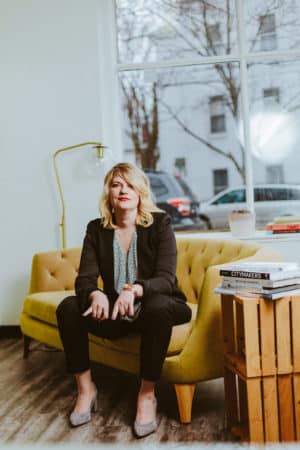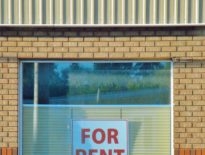Emily Isenberg
Founder and creative director, Isenberg Projects
Industry experience: 7 years
Emily Isenberg’s company straddles the worlds of event planning and retail real estate, working with retail startups and landlords on short-term strategies to fill vacant spaces with events and temporary tenants. A native of San Diego, Isenberg founded Isenberg Projects in 2010 and has worked with landlords such as Samuels & Assoc. on placemaking and pop-up stores to activate commercial properties. Isenberg is organizing a May 30 forum, “Retail Reimagined: Exile On Main Street,” including a discussion by developers, public officials and retailers on new strategies to fill vacant storefronts.
Q: What drew you to the retail side of the real estate industry and how did the concept for Isenberg Projects emerge?
A: I’ve always been working on different types of experiences and events and community building. The vehicle for that for a while was contemporary art, which led me to doing more brand experiences, and it kind of hit all the notes when I started working with commercial real estate companies. Specifically, I started doing some work for Westfield Group in 2010 and a lot of it was around placemaking initiatives, to get people to come to these retail centers, which they were ahead of the curve on. But I didn’t see these take hold until 2013 among mixed-use commercial real estate projects, and we started diving into that.
I feel so lucky because I love what I do. We’ve seen some really cool retail projects on office buildings, too. It plays into what’s happening in the stores and experiences on the properties. A lot of our projects right now are mixed-use, and retail plays a huge part in that. What brings people to places is the retail. That to me is always the most exciting part, but I think that one of the thing I really love is we get to tell stories from the ground-floor up. We’re not just making a cool logo. It’s more about making the place an engaging part of people’s lives. It sounds a little Willie Wonka, but if you enjoy a place, you go back. When I think about restaurants, the food might be good but that’s not what makes me go back. Experience is anything that makes us get off our couch.
Q: What are the latest projects you’ll be working on this summer?
A: I have a few secret properties I can’t talk about yet, but we’ve done a bunch of stuff for the Innovation and Design Building and we’re running the Boston Pickle Fair at the IDB. We’ve got a lot of work with public art in Boston and Brighton, and I have a personal project, Exile on Main Street, about how municipalities and officials and developers can start to think about how to get creative with vacant storefronts. The whole thing is how can we learn from the very cool and creative and commercially-focused projects. It’s a passion project. We’ve got the first section focusing on property owners and municipalities and how they deal with empty retail, and the second part is we’ve got some creative entrepreneurs who have occupied empty retail and kickstarted their businesses. People can be inspired and apply that to their own community and own neighborhood.

Isenberg Projects is organizing the “hoedown-sytle” Boston Pickle Fair at the Seaport’s Innovation and
Design Building in June, one of many placemaking and pop-up initiatives it runs throughout the area. Photo courtesy of Isenberg Projects.
Q: How are the ground rules for pop-up shops different than traditional retail leases?
A: For a traditional lease, anything under a year is super–short–term. We’ve gotten things worked out on our end where we have takeback rights on all our short-term deals, so we play nice with the brokers. There’s a 45-day clause where they need to be notified if they need to leave or extend, and that’s great. For a long time, a lot of brokers were kind of scared of us or found us annoying, because short-term deals were getting in the way of what they are working on.
Q: With the city of Boston expanding its parklets program, what opportunity does that present for new retail concepts?
A: We were in on the early stages on the Newbury Street parklet, and there’re definitely more opportunities. We’re not even close to delivering at the level other cities are. Part of what happens is streamlining efforts so people within different communities can do events and programs and have the support of the city. A lot of the projects are in a gray area from a permitting standpoint, so we need to understand what’s necessary. And if you were to quantify the time and costs to do a block party if you weren’t an event planner, it would blow your mind.
Isenberg’sFive Favorite Dive Bars in Boston, Past and Present
- TC’s Lounge
- Corner Cafe
- The Model Cafe
- The Fireside Tavern
- Quenchers Tavern




 |
| 


